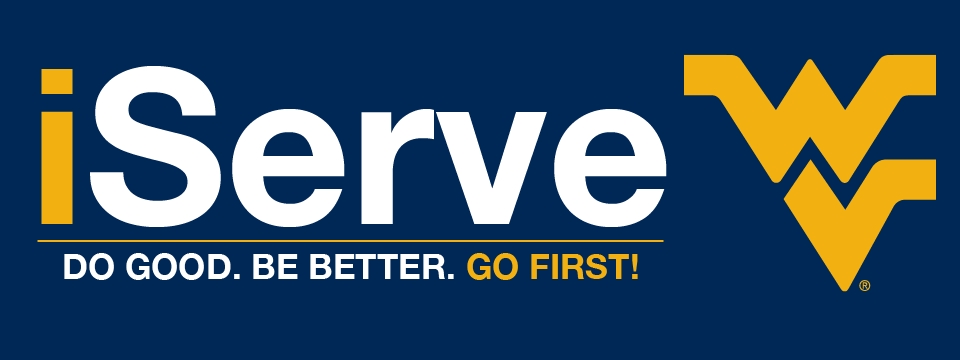How does WVU define service?
These guidelines provided by the Center for Community Engagement at West Virginia University, are intended to design and explain what constitutes service both on and off campus. This is not a policy and these guidelines might be updated or changed. Furthermore, some service opportunities may need to be explored more carefully to determine if the service is meeting the goals intended for a particular requirement.
All volunteers are responsible for reviewing the guidelines written here, and should email the Center for Community Engagement at iserve@mail.wvu.edu with any questions or concerns.
Volunteer: Any student, faculty or staff member from any WVU campus, engaged in any type of service defined below.
Community Service: The practice of volunteering one's time and talents to promote the common good and personal growth, while meeting actual community needs.
Service-Learning: A teaching and learning strategy by which students learn through intentional and structured community service tied to specific learning outcomes and integrated through reflection.
Outreach: Improving outcomes for individuals and families in West Virginia and the surrounding region through sustainable, active collaborations, building on resources, skills, expertise, and research-based, knowledge in a manner that is consistent with the land grant mission.
Civic Responsibility and Advocacy:
- Lifelong citizenship development through participation, engagement and empowerment
- Institution fulfills its purpose while acting to promote a strong inclusive democracy
- Creating a larger sense of mission, purpose, integrity, and clarity of direction
- Supports the development of community and belonging
Service activities recognized by West Virginia University must be of a nature that is appropriate for students, faculty, and/or staff.
Approved service opportunities meet the following criteria:
Every hour of service is an hour of valuable learning experience that will build community and allow students to grow and explore. With this in mind, service recorded on iServe should be reflected upon by students and must support the following outcomes:
- Creates a sense of belonging in the community. A sense of belonging makes you feel safe and supported and encourages you to care about the people and places around you.
- Educates about the differences and similarities of others; expands your worldview.
- Improves the quality of life for community residents and meets their stated needs.
- Aids in identity exploration, including values, purpose, and career paths.
- Increases self-efficacy (i.e., a belief that your voice has value and can make a difference) and self-confidence.
- The service may include, but is not limited to, participation with non-profit, governmental, public, faith-based, campus, or community-based organizations.
- Informal service (service outside of an organization) must include answering a question that allows you to reflect on the service. Informal service completed for family members may not be recorded.
- Service activity may not be directly supervised by family members.
- Purpose 2 Action, AmeriCorps, formal internship, Energy Express, and Service-Learning hours may be recorded in iServe, as these activities, although they may have some monetary compensation or be course requirements, include reflection on service that facilitates the goals of community service.
- If volunteers assist in the collection or distribution of donated goods, the time spent doing so may be recorded as service hours.
- The donation of money or food and other store-bought goods cannot be reported in iServe. While there is indisputable value in donating items, these types of donations do not meet the service requirements of iServe.
- Students who make items such as blankets for donation can record the number of hours they spent creating the item(s) along with where the items were donated. Gifts made for friends or family may not be recorded.
- Please contact an organization before making items intended for donation to ensure that the organization can accept these items.
- Students who donate or attempt to donate blood can record their time spent donating as service hours in iServe, up to two hours.
- Students fostering animals in their homes may record up to 4 hours per day. If a student feels this activity has taken up more time (due to veterinary visits or special care), the student may email iServe to request an exception.
- Students may use the same service hours to meet the service requirements of multiple courses, at the discretion of the course instructors. Hours cannot be counted twice towards CCE recognition goals (i.e., certificates, pins, or graduation cords).
If you have questions about whether a particular service opportunity you intend to complete meets the above guidelines, please contact the CCE staff at: CCE@mail.wvu.edu or call us at 304-293-8761 before beginning service.
Approval of service opportunities is at the discretion of the Center for Community Engagement at all times and is evaluated on an ongoing basis.
For more information about policies regarding service visit: https://communityengagement.wvu.edu/about/guidelines.


